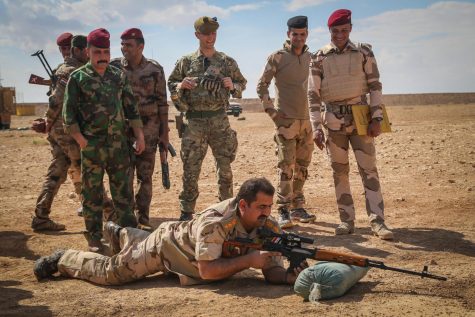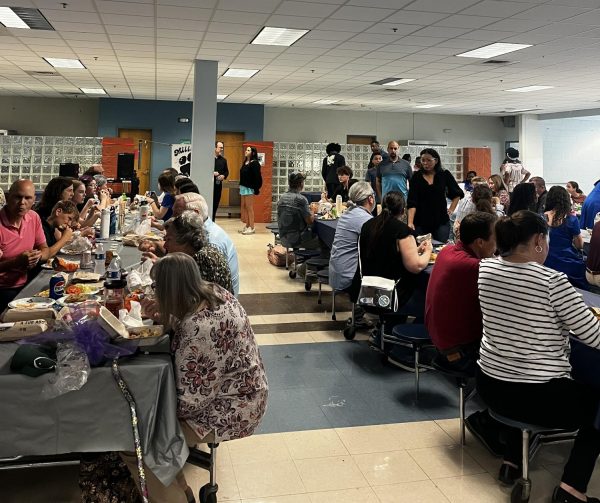Interview with a SEAL interpreter: A new perspective on the conflict in the middle east
May 18, 2017
Last week, I was able to talk to a former Kurdish interpreter, Sami Noaman, who worked with US forces in the Middle East before he was injured in a car bombing, to gain a new perspective on the conflict in the Middle East.
Sami hails from Kurdistan, which is one of the key players in the Middle East; a region that is often overshadowed by a media that is terrorist focused. Unlike these terrorist groups, however, Kurdistan is one of America’s allies and is heavily influenced by US culture. American companies, such as fast food chains, have made their way into Kurdistan, and American movies and shows are often played on TV. Kurdistan and the US work so closely together, and the Kurdish militia are a key opposition of ISIS. While most Americans are in favor of troops leaving the Middle East, Kurdistan is not, in fear of destruction by Iraq and Turkey.
The main subject of the interview was ISIS. That was when I learned a few facts about the US media and how life in the Middle East may be different from what the media says it is. According to Sami, terrorist attacks are very infrequent. The news led me to believe that attacks were much more common. “The US news and the British news are horrible,” he said, “they exaggerate too much.” Many of these nations are still able to live relatively normally, despite the crisis going on around them. Why are the attacks so infrequent? It is well known that ISIS is not as powerful as it once was, but their strength is even less than the media makes it out to be. Sami estimated that if America would fully commit to destroying the Islamic State, ISIS would be eradicated in less than a month. However, the political backlash would be too great to commit to a full anti-ISIS military assault. Minor attacks on ISIS, such as the MOAB that was recently dropped, do nearly nothing to defeat ISIS. These smaller scale attacks, not necessarily against ISIS, such as the missile strike on Syria, do not do much from a military perspective, but they continue to establish the US in the Middle East, according to Sami.
The territory ISIS controls is of little strategic value, with the exception of the city of Mosul, where 30,000 police and military abandoned their posts and retreated against an ISIS force they outnumbered 15 to 1. According to someone who has experience with tension among Muslims, a Shi’ite prime minister might want a Sunni populated area destroyed, and may leave the city largely undefended.
When talking about different terrorist organizations and which ones were threats, Sami said, “Many don’t say ‘hey I’m ISIS, hey I’m al-Qaeda, many of these are labels from the media.” Interesting insight was also offered on what could convince people to join such groups: “People in America grow up learning that they need to fight for freedom, so they join the army; people who grow up in places with these groups grow up being told that they need to fight in the ‘holy war.’”
Even though America is mostly standing by in the Middle East, there is still a strong presence in Kurdistan, where the Trump administration is trying to plant the seeds of independence. If this were to happen, the United States would have an even stronger presence in the Middle East and the region would be changed forever.

Training in the desert, an anti ISIS militia group fires a rifle. Groups like these have been instrumental pushing ISIS out of the stretch of desert they control.











